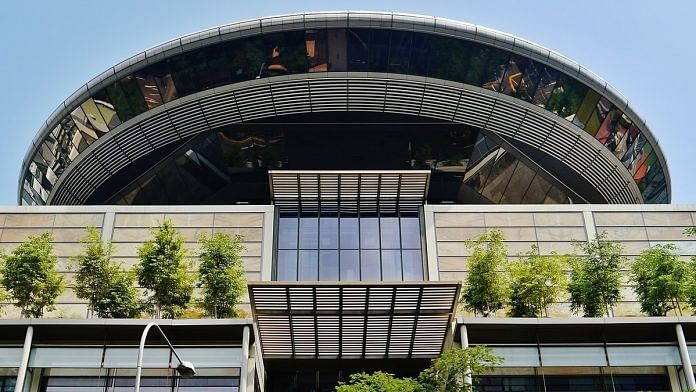New Delhi: The Supreme Court of Singapore in a ruling earlier this week upheld the law that criminalises homosexuality in the country. Passing the judgment, the court made a mention of the Supreme Court of India’s 2018 decision decriminalising homosexuality, expressing disagreement with it.
A five-judge Constitution bench of the Supreme Court of India had, in September 2018, struck down the colonial-era law that criminalised homosexuality, and declared it unconstitutional. The judgment, passed in the case of Navtej Singh Johar v Union of India, had asserted that Section 377 of the Indian Penal Code inhibited an LGBTQ person’s ability to fully realise their identity, by violating the right to freedom of expression under Article 19(1)(a).
The Singapore SC, however, disagreed with this position.
“A similar point may be made in addressing Navtej, where the Supreme Court of India ruled that the criminalisation of male homosexual conduct violates, among other rights, the right to freedom of expression,” the judgment authored by Judge See Kee Oon said.
“I am unable to agree with the reasoning of the Indian Supreme Court given that the court appeared to have accepted a wider meaning of what constitutes ‘expression’, extending beyond verbal communication of ideas, opinions or beliefs,” it added.
The challenge
The Supreme Court of Singapore was hearing a challenge to Section 377A of the Penal Code Singapore which criminalises homosexual acts between males. This is unlike Section 377 of the Indian Penal Code, which criminalised “carnal intercourse against the order of nature with any man, woman or animal”.
Section 377A reads: Any male person who, in public or private, commits, or abets the commission of, or procures or attempts to procure the commission by any male person of, any act of gross indecency with another male person, shall be punished with imprisonment for a term which may extend to 2 years.
The court had been approached by three homosexual men — an international disc jockey, a doctor and the director of a non-profit counselling and support organisation for LGBTQ+ community in Singapore.
Their applications had asserted that the provision violated Articles 9 (right to life and personal liberty), 12 (equal protection before the law) and 14 (right to freedom of speech and expression) of the Constitution of Singapore.
Also read: Publish ‘official version’: SC tells media after govt says fake news caused migrant exodus
‘Wide interpretation would save pedophiles’
Disagreeing with the interpretation of the word ‘expression’ under Section 19 of the Indian Constitution, the Singapore Supreme Court asserted that the word ‘expression’ has to be read with the word ‘speech’.
It opined that if a wider interpretation is given to ‘expression’, then virtually any act would be Constitutionally protected, leading to “absurd outcomes”.
“More specifically, sexual offences such as incest, pedophilia, necrophilia, or bestiality can arguably be covered by the Art 14(1)(a) umbrella as protected forms of “sexual expression”, on the premise that these acts can be characterised Ong Ming Johnson v AG [2020] SGHC 63 88 as mere expressions of sexual preference according to the idiosyncrasies of the individual. This surely cannot be correct, at least not in the Singapore context where these acts remain criminalized,” the court said.
It therefore held that its Constitution does not protect engaging in homosexual acts as a form of “expression”.
No ‘extra-legal’ arguments
The Singapore Supreme Court also noted that Indian courts allowed laws to be assessed not just on its aims but also on the law’s implications and effects.
The court, however, disagreed with this approach, asserting that it follows “traditional principles of judicial review”. It cited a precedent to reiterate that “the Singapore courts ought not take into consideration extra-legal arguments, regardless of how valid or plausible they may seem to be”.
The court then upheld the provision and asserted that Section 377A “continues to serve its purpose of safeguarding public morality by showing societal moral disapproval of male homosexual acts”.
Also read: No social media posts on CAA-NRC: Delhi court’s bail conditions for Shaheen Bagh protestors




‘Their applications had asserted that the provision violated Articles 9 (right to life and personal liberty), 12 (equal protection before the law) and 14 (right to freedom of speech and expression) of the Constitution of Singapore.’
Ok fine. So 14 was not considered a good reason. How about 9 and 12?
Fantastic perview as Indian Judiciary is just following the failed western culture.
i would agree with the singapore SC.
Indian supreme court is relatively speaking a mediocre set of desi people. They often do not know english and meanings of words.
Its much better not to rely on such poor quality judgements.